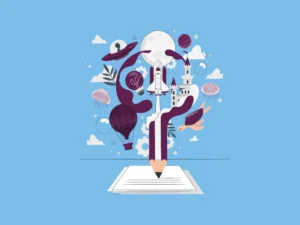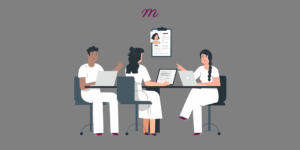As a mental health professional, your dedication to helping others and making a positive impact is not just a career but a life's mission. Your commitment to enhancing your skills and techniques is a testament to your dedication to providing the best possible care for your clients. If you want to elevate the quality of your therapy sessions, manage your workload effectively, and prepare yourself and your clients for meaningful interactions, this blog is for you. It contains practical tips to help you avoid burnout and become an even more effective and impactful therapist to continue making a profound difference in your clients' lives.
Preparing For Productive Therapy Sessions
Preparing thoroughly for each session can significantly improve your and your clients' outcomes. It's crucial to prioritize self-care to avoid burnout and sustain your well-being. When therapists are at their best, clients are more likely to experience breakthroughs and healing. By following these preparatory steps before, during, and after each session, you can ensure that you are fully prepared to provide your clients with the care, attention, and therapeutic support they need.
Prepare for therapy sessions the night before by:
Get at least six to eight hours of high-quality sleep. Sleep is important for being well-rested and fully present for clients. Quality sleep allows the mind and body to recharge, process experiences from the day, and be ready to focus during sessions.
On days when you have important tasks or appointments, consider waking up 30 to 60 minutes earlier than your typical routine. Doing so can give you extra time to prepare for the day ahead, reducing the likelihood of feeling stressed or rushed in the morning.
Engage in 5 to 10 minutes of mindfulness activities like meditation, deep breathing exercises, or gentle yoga stretches. These practices center the mind and body for the work ahead.
Plan a nourishing breakfast the night before session days. Preparing options like a smoothie, hard-boiled eggs, or overnight oats ensures eating within 30 to 60 minutes of waking up. This fuels the brain with the necessary nutrients and energy to function optimally for the workday.
Once you arrive at your office:
Take 15 to 30 minutes to carefully review your schedule and gather all the necessary materials for the day. Ensure you have all the required materials, such as notepads, pens, tissues, and any workbooks or handouts for specific clients.
Prepare two to three open-ended discussion points or questions for each client. This will help keep sessions on track and productive. Customize these questions based on each client's unique needs and circumstances.
Customize relevant materials and exercises for clients working through specific issues or challenges to support their progress. Print out worksheets, gather relevant handouts, and jot down notes on what to cover. These materials prepared beforehand will minimize distractions and allow you to focus entirely on your clients during sessions.
Before each session:
Take time to center yourself and get into a focused, calm state of mind before providing care for your client. Spend 5 to 10 minutes sitting quietly, practicing meditation, or taking slow, deep breaths. Doing this will help you clear your mind of distractions and prepare to give your best care; step away from your computer and phone during this time.
Take a brief walk or move around to shake off any lingering tension in your body. Gently stretch tight muscles to loosen them.
Take some time to revisit your client's file to refresh your memory on key details, their objectives for the current phase of therapy, and the questions you had jotted down earlier. Make a note of any other topics or issues you'd like to address and the questions you want to ask.
Visualize yourself having a productive, insightful, and empathetic conversation with your client. Imagine listening deeply and asking thoughtful questions that help your client gain clarity.
When your client arrives, greet them with a smile, make eye contact, and speak to them calmly and warmly.
During the session:
Turn off notifications on all devices, close emails, and, if permitted, close your doors to avoid interruptions. Being fully present and focused on your client during the session is ideal.
Focus on actively listening without judgment, paying close attention to your client's verbal and nonverbal cues.
Ask open-ended questions instead of "yes or no" questions, opt for questions that elicit detailed responses, and encourage your client to explore and express their thoughts and feelings freely.
Regularly summarize your client's input to confirm your understanding and show you are listening closely.
Share observations and gently challenge unhelpful thoughts while providing empathy, validation, and encouragement. This helps establish trust in the therapeutic relationship.
Maintain eye contact and an open, relaxed posture. Avoid giving advice or being overly directive. Remind the client that they have the answers within themselves; your role is to help them discover their solutions.
End each session by summarizing key points and action items to provide a sense of accomplishment and motivation for the next session.
After the session concludes:
Take a few minutes to review your notes. This will help you recall important details while they are fresh in your mind. Fill in any missing information and add insights into the client's mood and behaviors.
Update the client's file with any new details, including key discussion points, treatment plan updates, and the client's current mental and emotional state. Make any necessary adjustments to the treatment plan to ensure progress.
Follow through on any referrals or resources you promised during the session. Send relevant materials to the client or call to connect them with the recommended service. It's crucial to complete any follow-up actions while the details are still fresh in your mind.
Schedule the next session before the current one ends. Confirm the client's availability and preferred appointment time for the next meeting, and document future appointments in your calendar or scheduling system.
Enter any required billing codes or complete the required billing paperwork. Complete this administrative task as soon as possible after the session to avoid reimbursement delays.
Take a moment to decompress and transition out of therapist mode. Close your eyes and take a few deep breaths to fully exit one client's session before moving on to your next task.
Structuring Productive Therapy Sessions
Having a clear structure for each session is crucial for ensuring its effectiveness. A well-defined structure that includes time for discussion, questions, and review will maximize the impact of your therapy sessions. By following best practices for session preparation, structure, and closure, you can ensure that you bring your best self to each appointment. Your clients will appreciate your organization, insight, and ability to guide them toward improved mental health.
Here are the key components to include:
Set an agenda for the session and communicate it to your client at the start. Begin by reviewing progress since the previous session, setting goals for the current meeting, and outlining how you plan to spend the time. Ask for your client's input to ensure the agenda meets their needs. Make adjustments as needed to cover what's most important to them.
During the session, aim to finish discussing each agenda item a few minutes early. This gives time for questions or clarifications before moving on.
Keep an eye on the clock and end discussion sections ahead of schedule. This helps you wrap up the session on time, respecting your client's other commitments.
When your client is about to leave, recap the session's main points and agenda and any progress made with your client. This ensures that you've addressed their most important concerns. Also, note any changes or topics that must be discussed in the next meeting.
Creating an Effective Work Flow to Reduce Stress
It's crucial to systematize your work processes and manage your time effectively to minimize stress and enhance your focus during therapy sessions. Maintaining a good workflow ensures no critical details are overlooked, allowing you to provide the best possible care for your clients and perform at your highest level.
Here are some essential steps to incorporate into your workflow:
Establishing a consistent schedule for administrative tasks like filing paperwork, scheduling appointments, and following up on referrals is imperative. Completing these tasks at the same time each week helps create a routine and ensures everything runs smoothly.
Organize client files in a logical, easy-to-access manner using folders, color-coded tabs, or digital systems. This will make finding the information you need for each client quickly, efficiently, and more manageable.
After each session, take a few minutes to document the critical details you promised to follow up on and the next steps while they are fresh in your mind. This will help you prioritize your commitments and provide better client service.
Set boundaries to prevent your workload from spilling into personal time. Sticking to your schedule can help improve your work-life balance and overall well-being.
Review your to-do list at the end of each day, prioritize tasks for the next day, and plan how to spend your time. This practice can help reduce stress and increase productivity.
What Clients Can Do to Maximize Therapy Sessions
Sometimes, clients may need some encouragement, and that's okay! Luckily, there are several things you can do to ensure your clients make the most of your therapy sessions. Even though it may be difficult, clients who actively engage, are open and honest, follow recommendations, and practice new skills will often make the most progress in therapy.
Here are some tips for your clients to get the most out of sessions:
Actively prepare. Encourage clients to come with notes or questions. Therapy is collaborative; the more involved clients are, the more they benefit.
Establish an open environment. Creating an open, honest atmosphere where clients feel empowered to discuss what they want is crucial. For therapy to be effective, clients must be willing to discuss their feelings and experiences openly.
Follow through on homework and recommendations. Remind clients not doing so wastes time and money. Homework supplements therapy by providing tools and strategies for clients to practice.
Review and practice coping strategies. New coping strategies, techniques, and thinking methods are introduced during sessions. Motivate clients to review and practice these between sessions. It takes time and repetition for new skills to become a habit. Regular practice will help clients benefit from what they've learned.
Conclusion
Remember, your commitment to self-care and best practices will continue to fuel your ability to create meaningful change as a mental health professional. Your well-being is directly linked to your effectiveness, so remember to prioritize it. As you embark on this journey, remember you can't give from an empty well. Take care of yourself, embrace moments of joy, and cherish the small things. Your energy is contagious, so make sure it's the kind worth catching. Remember to use Mentalyc's free trial today as you grow and thrive. Our AI-powered software is designed to help you simplify progress notes, documentation, and organization, ultimately helping you achieve a sustainable work-life balance and ensuring that you can continue making a positive impact in your clients' lives.
FAQs: Making Therapy Sessions More Productive and Effective
How can I prepare for my sessions?
Preparing for therapy sessions is essential for maximizing productivity. Review notes from the previous session, develop a plan for the current one and have discussion points, questions, and potential insights in mind.
How should I structure a session?
Structuring a session involves:
Checking in with the client.
Discussing their goals and strategies.
Summarizing critical takeaways at the end.
Pro-tip: Leave time at the end to get feedback and address any final questions or concerns.
How can I reduce stress and bring my best self to each session?
To reduce stress and bring your best self to each session, practice self-care through mindfulness exercises, take regular breaks, and maintain a healthy work-life balance.
How can clients get the most out of therapy?
Clients can get the most out of therapy by fully engaging, attending each session with goals, questions, insights, or challenges, being open and honest, and practicing skills between sessions.
Resources:
Bishop, F. M. (2021, October 21). The 6 Critical Parts of Most Modern Therapy Sessions. Psychology Today. https://www.psychologytoday.com/us/blog/managing-addictions/202110/the-6-critical-parts-most-modern-therapy-sessions
Chow, D. (2023, April 17). Structuring a Therapy Session to Create Impact. Frontiers of Psychotherapist Development. https://darylchow.com/frontiers/structure/
Scott, E. (2022, November 30). 9 Ways to Cope With Work Stress and Avoid Burnout. Verywell Mind. https://www.verywellmind.com/how-to-deal-with-stress-at-work-3145273
Sutton, J. (2023, April 20). How To Plan Your Counseling Session: 6 Examples. Positive Psychology. https://positivepsychology.com/counseling-session/
Therapist.com. (2023, April 21). How to Pace and Close a Therapy Session. https://therapist.com/for-therapists/pace-close-therapy-session/
Van Saun, J. (2023, December 19). Tips For Your First Therapy Session As A Therapist. Brighter Vision. https://www.brightervision.com/blog/first-session-tips/
Why other mental health professionals love Mentalyc

“For those who have hesitations … It is a lifesaver. It will change your life and you have more time to be present with your patients.”
Licensed Clinical Social Worker

“If I were recommending this software to a colleague, I would tell them that it is the best thing that they could do for their practice.”
Licensed Professional Counselor

“It immediately changed my quality of life, personally and professionally. I went from 3–4 hours a week of notes to 1 hour at most … that alone is invaluable personally and professionally.”
Owner/Independently Licensed Marriage & Family Therapist (IMFT)

“Do yourself a favor, make your life easier. Use the tools that are readily available … I found Mentalyc to be one of the best tools that I’ve ever used.”
Licensed Marriage and Family Therapist







